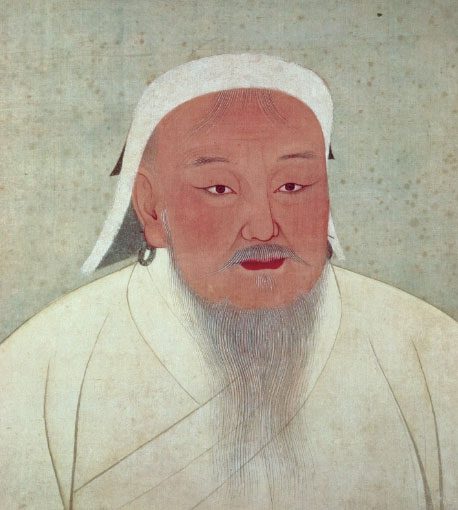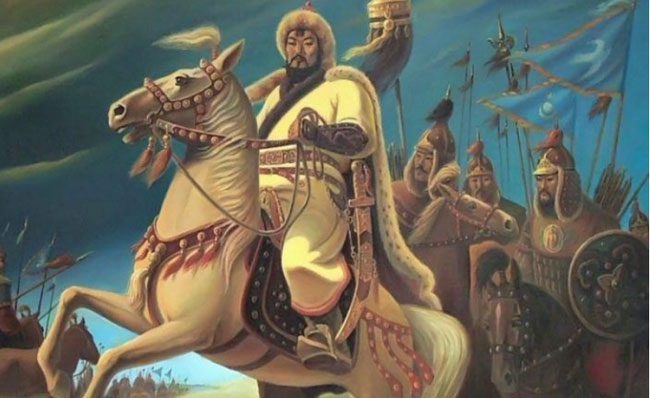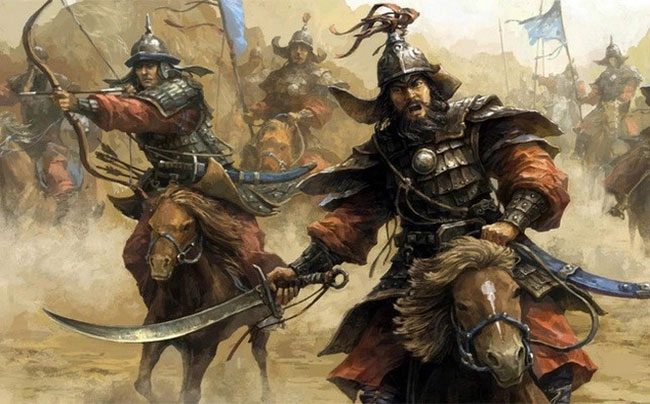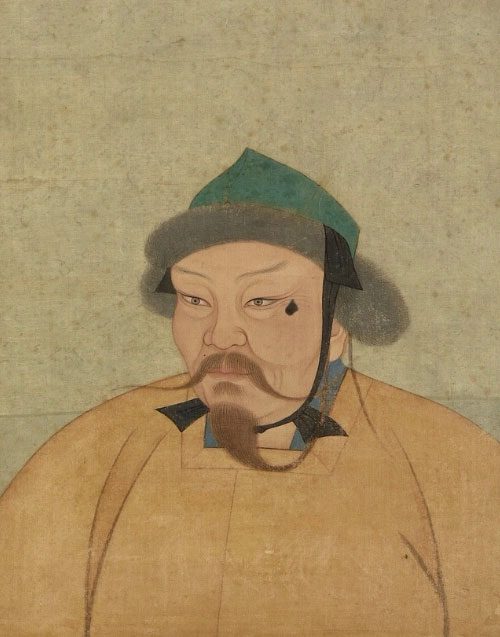It is surprising that the formidable Mongol army of Genghis Khan was halted in Europe by this tiny creature.
Genghis Khan (1162 – 1227) is one of the most prominent and influential leaders in world history. He founded the powerful Mongol Empire after successfully uniting various tribes in northeastern Asia in 1206.
Under Genghis Khan’s leadership and military strategy planning, the Mongol army was exceptionally skilled, shaking the foundations of the world. The territory of Mongolia during Genghis Khan’s reign extended from Asia to Europe. His army was not only elite and aggressive but also renowned for its undefeated record, becoming a nightmare for many nations at that time.

Genghis Khan is one of the greatest military leaders in world history. (Photo: Alamy).
From Childhood Shock to the Rise of Genghis Khan
Genghis Khan’s birth name was Temüjin. He endured a very tough childhood after his father, the military leader Yesugei, passed away unexpectedly, leaving his family abandoned on the steppe.
Facing numerous hardships during his childhood, Temüjin realized that to survive in Mongolia, one must ally with others. From then on, he harbored the intention of uniting the tribes of Mongolia.
In the process of uniting various alliances and factions, Genghis Khan broke the long-standing traditions of the Mongols. Specifically, instead of killing or enslaving the defeated, he pledged to protect them and persuade them to join future conquests with the promise of spoils. Notably, unlike traditional practices, Genghis Khan appointed capable and loyal individuals to important positions, regardless of their tribal affiliations.

Genghis Khan had his unique military organization and tactics, contributing to the success of the invincible Mongol army.
These innovative ideas helped solidify bonds and continued to strengthen the military power of Genghis Khan’s alliance, making it increasingly formidable. By 1206, Genghis Khan had realized his dream of uniting the Mongol tribes, forming one of the largest empires in world history.
After uniting the Mongol tribes, Genghis Khan and his skilled army launched a series of military campaigns from Asia to Europe. The Mongol army was a master of rapid assault tactics. Their horseback riding, archery skills, and the speed of the Mongol cavalry became a source of fear for many on the battlefield.
In 1220, Genghis Khan divided his army into two directions. Specifically, the main force, personally led by Genghis Khan, moved through Afghanistan and northern India to return to Mongolia. The second force, consisting of about 30,000 cavalry under the command of Subutai and Jebe, traversed the Caucasus and into Russia…
Additionally, Genghis Khan also dispatched a small detachment to scout in Poland and Hungary with aspirations to advance westward into Europe. However, in the summer of 1223, this detachment quickly retreated back to Mongolia.
Why did the Mongol army decide to abandon their conquest of Europe? This is a subject of much debate. According to historians, while the Mongol army was invincible, they were powerless against mosquito attacks. The malaria-carrying mosquitoes struck the detachment stationed in the Caucasus and along the Black Sea.
Furthermore, during this time, Genghis Khan himself suffered from chronic malaria. Most historians agree that Genghis Khan died at the age of 65 (in 1227) due to various illnesses, as his immune system had weakened following his malaria infection.
To this day, the burial site of Genghis Khan remains a mystery.
The Tiny Creatures that Stopped the Mongol Army from Entering Europe
After Genghis Khan’s death, his third son, Ögedei, succeeded him and launched a campaign to conquer Europe from 1236 to 1242. The Mongol army chose the route through eastern Russia, capturing the Baltic states, and advancing towards Budapest, Hungary, and the Danube River in December 1241.
From Budapest, the Mongol army continued deeper into Austria, moving southward, and eventually returning east to the Balkans in 1242.
Winston Churchill, the former British Prime Minister, once shared: “At one point, it seemed that all of Europe would fall into the hands of the Mongols from the East. The Mongol army, with its skilled horsemen and archers, swept through Russia, Poland, and Hungary in 1241, defeating the Germans and European cavalry near Buda, but then they suddenly withdrew. Western Europe was lucky to escape.”

The Mongol army was highly skilled.
According to experts, the reason the Mongol army decided not to push further into Western Europe was due to two main factors.

The sudden death of Ögedei was one of the reasons the Mongol army missed the opportunity to colonize Europe. (Photo: Public Domain).
- First, in 1241, the Mongol army withdrew after hearing the news of Ögedei’s sudden death. His passing is considered one of the reasons that “saved” Western Europe and all of Europe. Upon receiving this news, many generals leading the expedition had to withdraw their troops back to Mongolia to participate in the election of a new khan. According to Mongolian customs, when a khan dies, all Mongol forces, regardless of their location, must return to witness the coronation of a new khan.
- Second, the hot and humid climate conditions and mosquitoes causing malaria.
While the Mongol army was highly skilled, they struggled to adapt to the humid climate of certain regions. Moreover, heavy rainfall turned the Magyar plains in eastern Europe into marshlands, creating an ideal habitat for malaria-carrying mosquitoes. These mosquitoes played a part in hindering the Mongol army’s invasion of Western Europe.
Furthermore, the unusually high rainfall in Eastern Europe during the spring and summer of 1241 inadvertently destroyed essential grazing lands and pastures for the numerous war horses of the Mongol army, which was crucial to their military strength.
Despite achieving certain successes during their campaign in Europe, these skilled soldiers were often forced to retreat when confronted with malaria and other diseases, along with the defenses of the European alliances.
Historian John Keegan, who spent many years studying the Mongols, stated: “The Mongol army failed to project military power from the temperate and desert regions to the heavily rain-affected areas of Europe. They had to accept defeat.”
By 1368, alongside internal divisions and civil wars, the mosquitoes causing malaria were still mentioned as one of the main reasons for the disintegration of the once-mighty Mongol Empire.


















































